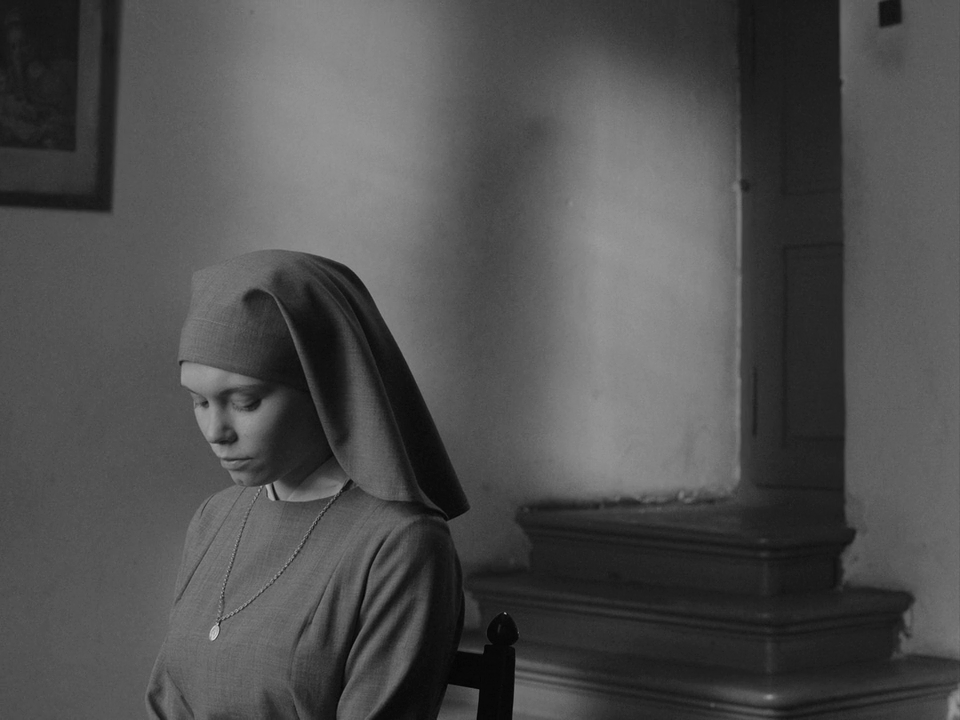
Most people would laugh if told that they’d be watching a sixties period road trip film that just happened to involve a nun and a sex-loving, drink-having judge who was formerly associated with the Stalinist regime. It’s a bit of a ridiculous concept, but Ida doesn’t have much of a sense of humor about it to go on. It prefers to investigate the qualms that Anna (Agata Trzebuchowska), this young Catholic nun, would have with confronting life outside the abbey and finding out she’s Jewish and her real name is Ida Lebenstein. Her aunt Wanda (Agata Kulesza) is a cynical alcoholic involved with the Communist party. In most cases, this would be quite the tale, as polar opposites confronting each other and growing as people because of it is something to witness. And Ida tries to achieve that, but it’s hard to find a reason to care about these people when this concept is only presented through a thin narrative; one that attempts to overwhelm the audiences with images rather than allow the characters to speak for themselves.
Ida is a gorgeously shot film. No one in this world would say otherwise, considering every single shot looks like it belongs hanging in a museum. The camera rarely moves, almost as though it’s trying hard not to break the sanctity of the image. While that’s something I would rarely complain about, it’s almost disappointing how much more director Pawel Pawlikowski seems to care about his precious frames than the potentially interesting characters that populate the film. Most of their conflicts are presented through dialogue, but so much of it comes off as though it’s simply being offered as another excuse to get the ride moving along so more images can be thrown the audience’s way. When nearly every piece of information is handed to one with mundane delivery, it’s hard to find a reason to care. As often as the filmmakers try to offer depth to the characters through imagery, nothing can truly be accomplished if the writing and the directing are always at odds.
Regardless of frustrations with the story, it’s wonderful to watch these excellently composed images. Even a man squatting in a grave, surrounded by dirt as he explains why a child was allowed to live even though her family was not, is gorgeous to look at. Each of these frames achieve their effect at depicting exactly what it seems Pawlikowski wants them to achieve. All the actors are clearly blocked, positioned in just the right location so that we can see Trzebuchowska’s calculated stares in the silence (or while some damn fine jazz is playing) and Kulesza’s constant emoting and ability to steal the scene without much effort. She’s a hell of an actress whose talent was arguably squandered on a supporting role that was mediocre at best. With each strong scene that the film has, it’s easy to see the potential that was available for mining. But for each great scene, it has one that borders on embarrassing, many of which are so cold and detached that it leaves one with nothing to grasp onto once the film is done.
To a certain extent, I almost think as though Pawlikowski had a bit of self-awareness to him while making the film. At one point, Wanda notices a stained glass that Anna sees inside a barn at the house where her parents formerly lived. “Fancy stained glass next to cow shit,” she says bluntly, and that’s sort of how I feel about this film, although not quite so strongly that I’d declare its narrative cow shit. It’s the kind of movie many might love to sit around and watch on a leisurely afternoon, especially with the sound off and just for the sake of providing something nice to watch in the background. But even standing at a breezy eighty-two minutes, Ida can feel like a slog to navigate through because of its inability to offer as much beauty in its characters as its frames wish they could.
—
Ida is currently available on Blu-ray, DVD
, and for purchase or rental on Amazon Instant Video
.
Directed by Pawel Pawlikowski; written by Pawel Pawlikowski & Rebecca Lenkiewicz; starring Agata Trzebuchowska & Agata Kulesza; 82 minutes.



 Derek
Derek
 Isabelle
Isabelle